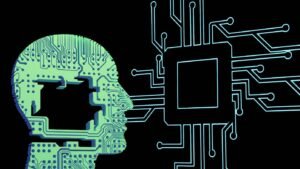Will AI Replace Jobs?
The rise of Artificial Intelligence (AI) has sparked concerns about job displacement and the future of work. While AI shows great potential in automating certain tasks, the impact on jobs is still a debated topic.
Key Takeaways:
- AI has the potential to automate repetitive and mundane tasks, improving efficiency and productivity.
- Some jobs may be replaced or transformed by AI, but new opportunities and roles will also emerge.
- AI can augment human capabilities and free up time for more value-added tasks.
- Human creativity, critical thinking, and social skills are difficult for AI to replicate, making certain jobs less susceptible to automation.
- Adapting to the changing job landscape requires continuous upskilling and reskilling to remain relevant.
The Impact of AI on Jobs
AI technologies have already started to impact various industries, primarily by automating repetitive tasks. *AI-powered chatbots provide instant customer support, *machine learning algorithms analyze vast amounts of data, and *robotics automate assembly lines. However, contrary to the fear of massive job losses, studies suggest that AI will transform, rather than replace, most jobs. According to a McKinsey report, only about 5% of jobs can be fully automated, while around 60% could have at least 30% of their tasks automated.
The Future of Work
The future of work will be characterized by a combination of human and machine collaboration. While AI may replace some jobs, it will also create new roles and opportunities. *For example, the demand for AI experts, data scientists, and AI trainers is rapidly increasing. As AI automates routine tasks, it can free up human workers to focus on complex problem-solving, creativity, and managing AI systems. Digital skills will become essential, and workers will need to continually update their skills to adapt to the evolving job landscape.
Jobs Most Vulnerable to Automation
Certain jobs are more susceptible to automation than others. Occupations that involve repetitive tasks, data processing, or physical labor have a higher risk of being automated. *For instance, jobs in manufacturing, transportation, and customer service are among those most likely to be impacted by AI. Conversely, jobs that require high levels of creativity, interpersonal skills, and abstract thinking are less likely to be fully automated. *These include professions like artists, therapists, and scientists.
Benefits of AI in the Workplace
While concerns about job displacement exist, AI brings several benefits to the workplace. *Automating repetitive tasks can improve productivity and efficiency, freeing up time for employees to focus on higher-value tasks. This can lead to *increased innovation, *improved decision-making, and *enhanced customer experiences. In addition, AI can augment human capabilities by providing intelligent insights and recommendations, leading to more informed and effective decision-making.
Preparing for an AI-Driven Job Market
To thrive in an AI-driven job market, individuals and organizations need to adapt and prepare for the changing landscape. *Some key steps to consider include:
- Continuous Learning: Invest in continuous upskilling and reskilling to remain relevant and competitive.
- Embrace Change: Develop a growth mindset and embrace new technologies and ways of working.
- Collaboration: Foster collaboration between humans and machines to maximize productivity and efficiency.
Conclusion
AI has the potential to automate certain tasks and transform the job market, but it is unlikely to completely replace human workers. While job displacement will occur, new opportunities and roles will emerge. Adapting to the changing landscape requires a proactive approach towards upskilling and embracing the benefits of AI in the workplace.

Common Misconceptions
AI will completely replace jobs
One common misconception about AI is that it will completely replace jobs, leaving no room for human workers. However, this is not entirely accurate. While AI does have the ability to automate certain tasks and eliminate some positions, it is more likely to transform jobs rather than eliminate them altogether.
- AI can free up workers’ time by automating repetitive tasks.
- Jobs may shift to focus on more complex and creative tasks that AI cannot replicate.
- AI can create new job opportunities in fields related to AI development and management.
AI will primarily affect low-skilled jobs
Another misconception is that AI will primarily affect low-skilled jobs, leaving higher-skilled positions untouched. While it is true that some low-skilled jobs may be more susceptible to automation, AI has the potential to impact a wide range of professions across different skill levels.
- AI can automate routine tasks in various industries, affecting both low and high-skilled workers.
- Even high-skilled jobs can have certain tasks automated by AI, increasing efficiency.
- AI can augment human capabilities, allowing workers to focus on more complex aspects of their jobs.
AI will lead to mass unemployment
There is a misconception that AI will lead to mass unemployment, causing a significant loss of jobs. While AI can result in job displacement, it does not necessarily equate to long-term unemployment for most individuals. Historically, technological advancements have often led to the creation of new job opportunities.
- New industries and sectors may emerge due to advancements in AI technology.
- Reskilling and upskilling programs can help individuals adapt to changing job requirements.
- AI can support workforce productivity and lead to job growth in certain areas.
AI will replace all human decision-making
Some believe that AI will eventually replace all human decision-making processes, making human judgment obsolete. However, it is important to recognize that AI systems are designed to assist and augment human decision-making, rather than completely replacing it.
- AI can provide data-driven insights, but human judgment is often essential in making informed decisions.
- Human context, emotional intelligence, and ethical considerations are factors that AI may struggle to replicate.
- AI can assist in decision-making by providing recommendations, but the final decisions are still made by humans.
AI will create a dystopian future
Some people have a misconception that AI will inevitably lead to a dystopian future, where machines reign supreme and humanity is at their mercy. While there are valid concerns about ethical and societal implications, it is crucial to approach AI development with responsible and ethical practices to mitigate potential risks.
- Regulations and guidelines can be implemented to ensure transparency and accountability in AI systems.
- Ethical considerations can shape the development of AI technologies and prevent negative outcomes.
- Continued ethical discussions and collaboration between policymakers, experts, and industry can help address potential risks and shape the future of AI.

Job Losses Due to Automation
According to a study conducted by McKinsey Global Institute, automation and artificial intelligence (AI) technologies could eliminate up to 800 million jobs worldwide by 2030. This table compares the projected job losses across different sectors.
| Sector | Projected Job Losses |
|---|---|
| Manufacturing | 200 million |
| Transportation and Warehousing | 60 million |
| Wholesale and Retail Trade | 100 million |
| Agriculture | 50 million |
| Construction | 45 million |
Job Creation through AI
While AI may lead to job losses, it also creates new opportunities. This table showcases the estimated number of jobs that could be created in emerging fields due to AI technology advancements.
| Industry | Projected Job Creation |
|---|---|
| Data Science and Analytics | 2.7 million |
| Cybersecurity | 3.5 million |
| Robotics Engineering | 1.2 million |
| AI Ethics and Governance | 750,000 |
| Virtual Reality/Augmented Reality | 1.8 million |
Education Level and Automation Vulnerability
The impact of automation on jobs varies based on the educational qualifications required for each occupation. This relates to the education levels and the vulnerability of those jobs to automation.
| Education Level | Percentage of Jobs at High Risk of Automation |
|---|---|
| No Formal Education | 62% |
| High School | 49% |
| Vocational Training | 32% |
| Bachelor’s Degree | 13% |
| Master’s Degree or Higher | 6% |
Income Inequality within Occupations
While AI technology may increase overall productivity, it can also exacerbate income inequality within specific occupations. This table displays the average income gap between the top earners and bottom earners in various jobs.
| Occupation | Income Gap (Top Earners vs. Bottom Earners) |
|---|---|
| IT Managers | $80,000 |
| Software Developers | $45,000 |
| Financial Analysts | $60,000 |
| Sales Representatives | $30,000 |
| Customer Service Representatives | $15,000 |
Regional Disparities in Job Losses
The impact of job losses due to AI and automation may not be evenly distributed geographically. This table showcases the regional disparities in job losses across different continents.
| Continent | Projected Job Losses |
|---|---|
| North America | 29 million |
| Europe | 44 million |
| Asia | 400 million |
| Africa | 75 million |
| Australia | 8 million |
Job Transition Challenges
Transitioning from old jobs to new ones requires retraining and adaptability. This table highlights some challenges faced by employees when transitioning to jobs involving AI.
| Challenge | Percentage of Employees Perceiving It as a Challenge |
|---|---|
| Acquiring New Skills | 58% |
| Cultural Change in the Workplace | 42% |
| Job Insecurity | 64% |
| Age Discrimination | 27% |
| Relocation | 36% |
Gender Distribution in AI-related Fields
Gender diversity in AI-related fields remains a concern. This table shows the percentage of women employed in various AI occupations.
| AI Occupation | Percentage of Women |
|---|---|
| Data Scientists | 26% |
| AI Researchers | 22% |
| Mechatronics Engineers | 9% |
| Computer Vision Experts | 15% |
| AI Policy Experts | 33% |
Investment in AI Technology
Organizations across the globe are investing heavily in AI technology. This table presents the top five countries by AI investment in billions of dollars.
| Country | AI Investment (in billions USD) |
|---|---|
| United States | 56 |
| China | 17 |
| Germany | 5 |
| United Kingdom | 4 |
| France | 3.5 |
Public Perception of AI Technology
Public perception plays a role in the acceptance and integration of AI technology. This table displays the percentage of people who believe AI poses a threat to jobs.
| Region | Percentage of People Who Believe AI Poses a Threat to Jobs |
|---|---|
| North America | 37% |
| Europe | 52% |
| Asia | 81% |
| Africa | 61% |
| Australia | 45% |
Conclusion
The integration of AI technology into various industries raises concerns about job displacement, income inequality, and the need for adaptation. While some jobs may be at risk, this disruption also presents opportunities for new job creation and advancements in emerging fields. It is essential to address challenges related to education, job transitions, and gender diversity while recognizing the potential benefits AI technology can offer. The public perception surrounding AI plays a significant role in shaping its integration and acceptance. As the world continues to evolve, finding a balance between automation’s positive impact and its potential challenges is crucial for a sustainable future of work.
Frequently Asked Questions
Will AI Replace Jobs?
Will AI completely replace human workers in the next decade?
What types of jobs are most likely to be affected by AI?
Can AI contribute positively to the job market?
Will AI technologies require workers to have specific skills?
Will the widespread adoption of AI result in overall job loss?
Can AI foster economic growth and innovation?
What societal challenges may arise if AI replaces jobs?
How can workers prepare for the integration of AI in the workforce?
What role does human judgment play in AI-driven decision-making?
What are the potential benefits of AI in the workplace?




